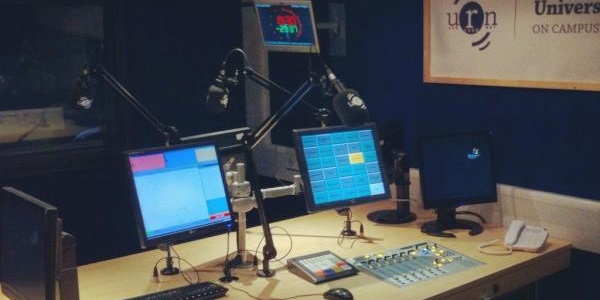
May 6, 2015, by Oliver Thomas
Thucydides on student radio
Thucydides hit the airwaves of Radio 4 last week, but has also featured on the University of Nottingham student radio: James Gooderson describes his joint Independent Second-Year Project with Henry Boutflower.
The term ‘marathon’ comes from the scene of a Greek victory over the Persians in 490 BCE. Herodotus tells of the Greek Pheidippides running from Marathon to Athens to announce that the battle had been won: he ran the entire distance without stopping, burst into the assembly yelling ‘we have won’, then collapsed and died.
The Athenians brought up their victory at Marathon over half a century later as part of a speech that would play an integral part in starting one of the largest conflicts of the Classical world, the Peloponnesian War. Naturally in this war, runners like Pheidippides would have been used frequently to relay commands and news.
Modern communications technology is vastly improved through phones, television or radio. It’s the last of these that particularly interests me and my fellow-student Harry Boutflower.
As regular contributors to University Radio Nottingham we were both extremely interested in combining our degrees with a society we really enjoy. We therefore decided for our ISYP to create a radio show set in the ancient world. For the topic we settled on a piece of literature which we had both studied in detail last semester – the debate at Sparta in 432 BCE, as reported by Thucydides. Having covered the speech of Archidamus in our Extended Source Study module, we both believed that there was more to gain from exploring Thucydides’ debate as a whole.
We designed a radio script whose basic setup was one Perioikos as host, and two Spartan men in the studio reviewing the speeches and the political situation as a whole. The discussion between the three characters was broken up with a number of features – a news bulletin covering the local and national news at the time, an advert from an olive oil trader, and a phone-in interview from an Athenian.
One of the main advantages of coverage at any event is the ability to look at and comment on the bigger picture and we kept this very much in mind when preparing our script. The two Spartans in the studio broach a number of modern scholarly topics. Should Sparta destroy Athens at the end of the war? Was Sparta as war-mongering as they seem?
With both of us looking at future careers in broadcast journalism, the project has given us more insight into what radio projects are truly about, as well as allowing us to explore in great detail a number of issues from the ancient world. The project was a wonderful lens to look through when it came to adapting the ancient world, and gave us a real appreciation of the work that Thucydides did both in collecting and writing his History.
Image: URN studio 1, by Mrrothe, licensed via Wikimedia Commons
No comments yet, fill out a comment to be the first

Leave a Reply